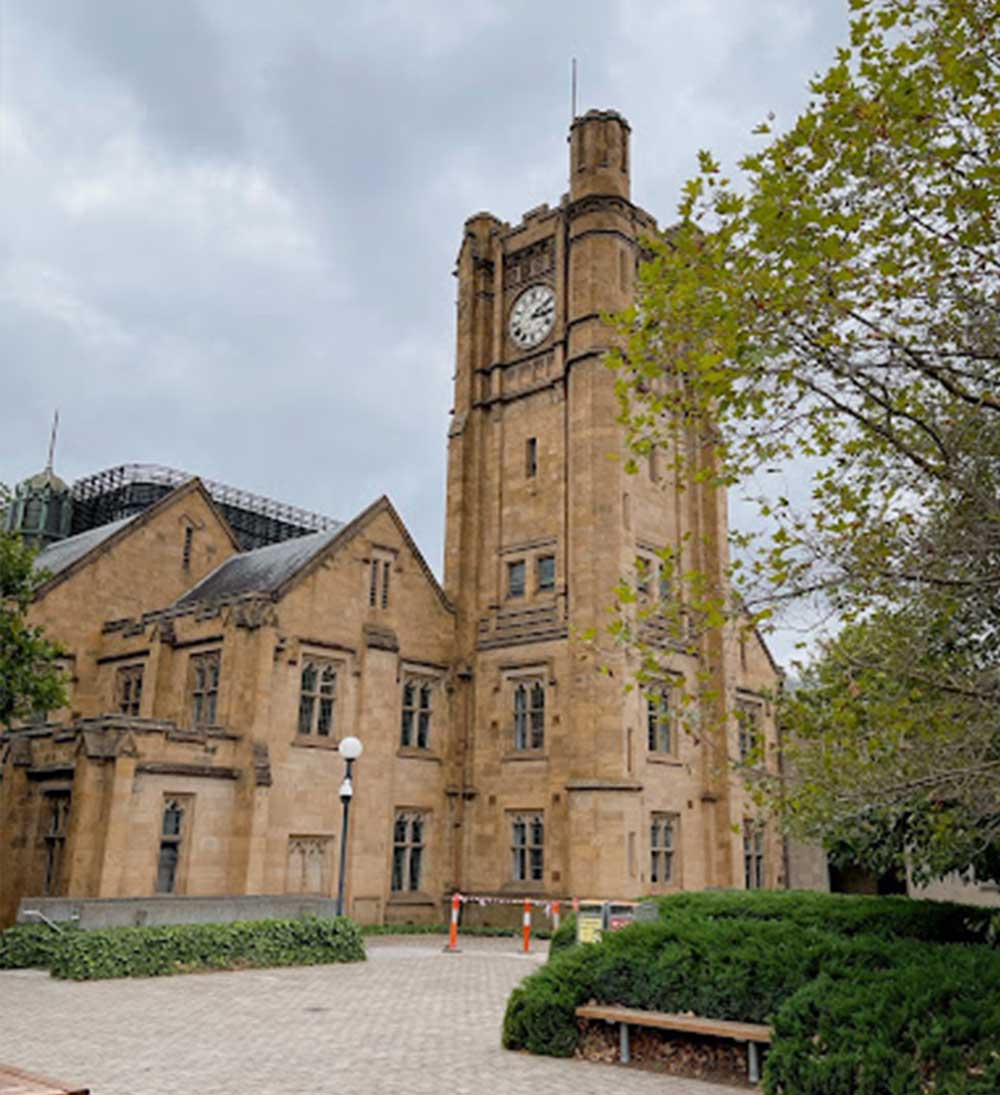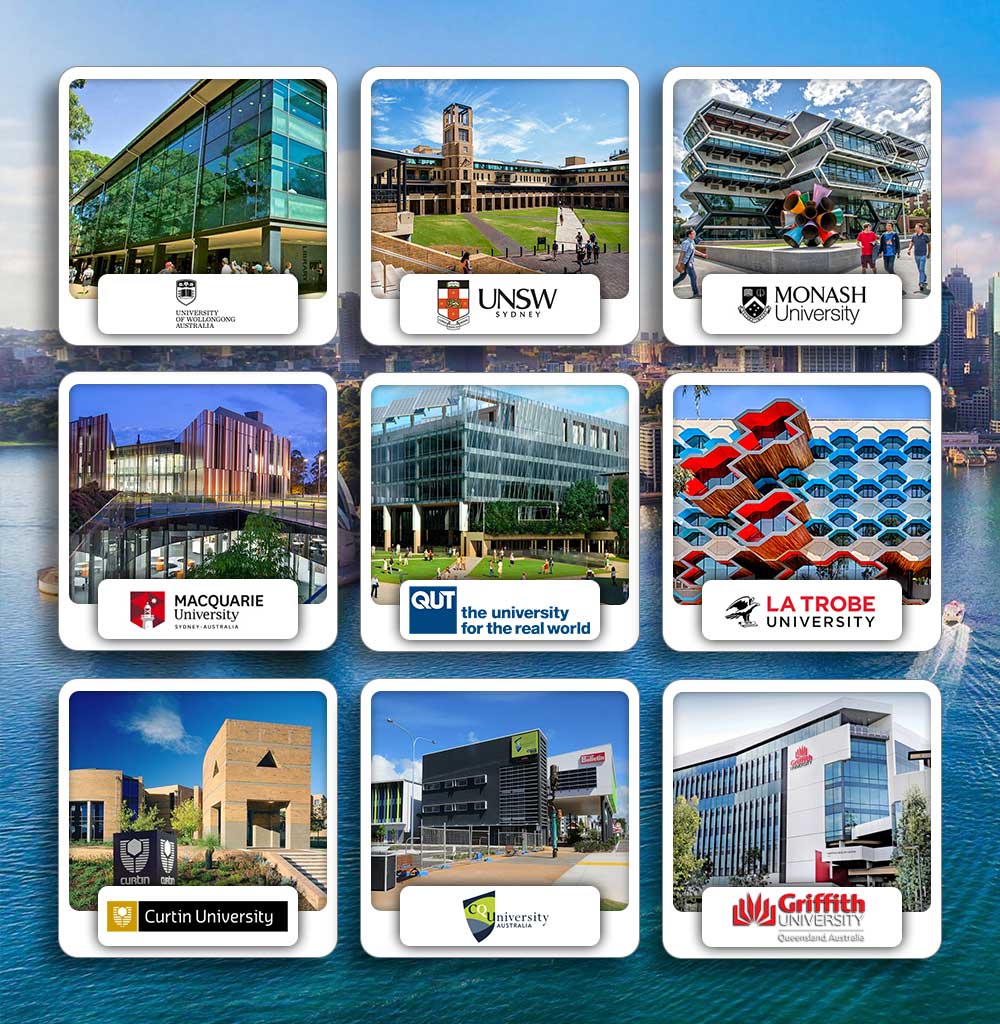Primary and Secondary Education in Australia:
A Comprehensive Guide

Australia holds a global reputation for academic excellence with a teaching structure that is inclusive, globally competitive, and uniquely holistic. This robust education system is overseen by various state and federal authorities which is designed to foster both academic proficiency and personal development. Australia has a governing education body in each of its states and territories, which provides guidelines and curriculums, however, overarching national standards are always maintained and continue to improve.
Primary Education: Laying the Foundation
Primary education is for children aged between five and twelve years and lays great emphasis on the all-round growth of the child. It covers Kindergarten (or Prep in some states) to Year 6.
Curriculum Focus: These include English, Mathematics, Science and Humanities. Whilst also providing generally diversified exposure that incorporates art, physical education, language, culture, and technology.
Inclusivity and Support: Schools provide a lot of support for students from diverse backgrounds, and even have English programs for newcomers to accelerate their learning process, named English as a Second Language (ESL) which is provided alongside the standard curriculum. This ensures that non-native English speakers are not left outside and can catch up to the English standards of their peers quickly.
Transitioning to Secondary Education
As students move to secondary education, the curriculum becomes more specialized. This phase, covering Years 7 to 12, is where students begin to shape their future academic and career pathways.
Curriculum Breakdown: Secondary education consists of years 7 to 12 in which the student’s curriculums start to become more focused enabling the student to try new subjects and disciplines. From year 9, students can choose a small portion of their curriculum through elective subjects, i.e., arts, technologies, languages, humanities, health, sciences, and VET courses. After they have gotten a taste of these electives, they get another opportunity to choose their subjects in years 11 and 12 where the only compulsory subject is English and the rest of the 6-8 subjects are up to the students to choose from. Subjects in years 11 and 12 have a much wider array of choices and also include different difficulty levels to choose from, providing students with the ability to use their specific academic strengths to their advantage.
Assessment and Certification: Following the release of the year 12 results, assuming minimum academic conditions are met, students are awarded the Senior Secondary Certificate of Education (varies by state, e.g., HSC in NSW, VCE in Victoria). The certificate is key for Australian university admissions and is widely accepted and recognised internationally.
Integration of International Students
Support Systems: Australian schools have facilities that can support the academic and social integration of international students. School counsellors, ESL (English as a second language) teachers and international student coordinators have important roles to play in easing their high school transition.
Cultural Exchange: Australian schools have international students as an important aspect that helps in the creation of a diverse blend with a multicultural society. Several schools have multicultural conferences meant to showcase the different heritages of the world, in their efforts to produce global citizens.
Extracurricular Activities: Extracurricular activities in Australian schools play a vital role in building the student’s character, teamwork, and leadership. They range from sports: like cricket, soccer, and netball to arts: music, drama, and dancing programs or academic clubs like debate clubs and science clubs, among others. These opportunities allow the holistic development of the student whilst ensuring a memorable childhood for the student.
Considerations for International Parents
School Year: Unlike other countries, the school year in Australia starts towards the end of January or early February and ends in December with rest breaks held in April (Autumn), July (Winter) and late September (Spring) respectively as well as longer summer break from mid-December to the ending of January.
School Choice: Australia offers a range of public, private and religious schools. Parents must evaluate the curriculum, available extracurricular activities, support for non-English speakers and close proximity of the school before enrolling their children.
Visa Requirements: It is a prerequisite for parents to have a student visa for their child studying in Australia. The process includes meeting several requirements, such as obtaining a Confirmation of Enrolment (CoE) from the desired school.
Health and Well-being: In Australia, student well-being is often given priority in schools and most of them own sick bays and counselling centres, with full-time nurses and counsellors therefore cited to cater for the physical and emotional ailments of students.
Preparing for the Future
Australian primary and secondary education instil much more than knowledge; it stimulates critical thinking, creativity, and resilience. International students move on as adequately prepared individuals, not only for Australian universities but also for global prospects. Career is one of the vital aspects of life and most institutions have outfitted their schools with career advisors plus counselling sessions to help students’ identity themselves, make a path and finally realize their dreams.
Colleges in Australia

Understanding the College Landscape
Australian colleges have multiple roles. Whilst universities are more theoretical with some research courses, colleges tend to focus more on the practical application of the knowledge with either foundational courses providing an entry pathway into university or a direct pathway into a job after graduation. Universities cover a wider range of disciplines and focus on in-depth knowledge and research skills whilst college courses range from certificate 1 to advanced diploma and focus on a smaller range of specific professions to prepare them for the job market. Many international students view these institutions as bridges and therefore offer pathway programs that allow easier transition to Australia’s leading universities.
Why Choose Colleges Before Universities?
Tailored Learning Environments: Colleges provide a student-oriented learning environment through smaller class sizes. Close interaction with faculty, customized support, and a family-like atmosphere are some of the benefits which international students can enjoy while those may become overwhelming in larger university settings.
Focused Curriculum: Colleges have specialized programs with a focus on practical skills. Whether in arts, technology, business or health sciences, the students receive hands-on training that prepares them for the industry.
Cost-Effective: In general, tuition fees are more affordable in colleges than in universities. This is an important benefit for international students who face financial constraints in foreign universities.

Pathway Programs: The Bridge to Universities
Many colleges in Australia, especially those targeted at international student, have pathway programs as one of their primary offerings. These are tailor-made to bridge the academic or English language gaps students might have.
Foundation Studies: They are usually one-year duration programs targeting students who do not qualify for direct entry into a university degree. Their subjects are strictly related to what students wish to study in the university meaning students have a basic understanding of their course when they enter university. It is important to note, that the student must pass the academic requirements of the university course by achieving a satisfactory result in their foundation course. The foundation course and the university course are packaged together in the offer letter and CoE before student starts their foundation course meaning their pathway after their foundation course is usually paved. Students who wish to change their pathway university course or choose the same course in a different university must provide the university with a letter explaining their reasoning behind their decision and must convince the university before being allowed to change their trajectory.
Diploma Programs: These courses are the equivalent of the first year of a university bachelor’s degree and are designed for the student to enter the second year of the university course following the completion of the diploma program. These courses are designed for students who do not meet the academic requirements of their respective university degree programs.
English Language Intensive Courses for Overseas Students (ELICOS): Specifically made for students who want to improve their English proficiency to meet the minimum English proficiency for their target university or college courses. The duration of the ELICOS course will depend on the gap between the student’s English test results and the target course’s English requirement.
Dual Qualification Advantage
Students who undertake pathway programs to enter their university degree usually gain an advantage over their peers in university as they already have experience in an English-speaking classroom and are used to navigating university life. When a student first enters Australia, it can take them a small duration of time to adapt to all the new changes in their life, language and learning environment therefore the exposure to the pathway program beforehand, plays a large role in the student being comfortable in their main university degree to perform to the best of their ability.
Also, students from pathway programs normally have friends from their pathway program who they see in their university degree and can learn from them whilst teaching each other. This ensures a strong network in the university as well as the experience of being able to use your institution’s resources. Whilst pathway programs are designed to facilitate the transition to a university degree, they come with their own certification meaning following graduation from university, the student is provided with two degrees they can show employers to prove their more detail-orientated and extensive journey.
Collaborations and Partnerships
Many universities have formal partnerships with many Australian colleges. This ensures that the college curriculum is aligned with the university standards which provides international students the confidence that their university recognizes and accepts their pathway program. We will assist you in matching degrees to form the best pathway for you to reach your goals.
Support Systems for International Students
Recognizing the unique challenges international students might face, Australian colleges have robust support systems:
Orientation Programs: It is meant to introduce students to the academic environment, expectations, and resources.
Academic Support: Tutoring, study skills workshops, and assignment help- to make students perform well in their studies.
Counselling Services: Addressing both academic and personal challenges, from homesickness to career guidance.
Post-College Transition
Once students have completed their pathway program, their entry into university is seamless as their coursework in the pathway program prepares students through coursework, guidance, and networks. The pathway course teaches students how to access your institution’s online and in-person resources to complete your coursework whilst constantly providing feedback on your work, giving the students confidence in their university course due to their prior extensive experience. In addition, they easily access relationships established during their college period enabling them to get advice as well as a sense of direction in this transition.
In Conclusion
Australian colleges are not only vocational training centres but provide an access point to the wider Australian universities’ academic world. Students can build the confidence that they require to perform excellently on their university course, from the combination of practical and academic experience. Colleges provide students with a set of specialized courses as well as pathway programs, and the environment that is most appropriate to their needs of learning so that they would be ready for various challenges and opportunities they are going to face at university.
Universities in Australia :
A Beacon of Excellence for Global Learners

The Pinnacle of Higher Education
Australia prides itself on its commitment to exceptional higher education and research which is proven through its array of quality universities across the country. Australian universities are world-renowned and therefore attract students globally, creating an environment of diverse cultures, ideas, and innovations.
Australia’s Position on the World Stage
Australia is home to several universities that consistently rank among the world’s top 100. These institutions are lauded not just for their academic rigour but also for their groundbreaking research, diverse courses, and holistic approach to education that combines classroom instruction with real-world application. Arya Group enhances this by providing detailed insights into university strengths, facilitating applications, and ensuring that students are matched with programs that suit their personal and academic aspirations.
A broad spectrum of courses
Undergraduate Programs: Bachelor’s degree courses are the entry into specific fields of education, lasting 3 to 4 years in duration and are referred to as undergraduate programs. These courses are constructed to provide critical thinking, problem-solving skills, and the knowledge of the disciplines in question. For instance, Australian Universities have broad courses in arts, business, engineering to sciences and specialized disciplines such as marine biology, aerospace engineering and indigenous studies. In your journey to achieving your dreams, choosing the best course for yourself will provide you with the fastest route to your destination whilst picking the wrong degree in pursuit of your dreams will unnecessarily waste essential resources such as your time and money.
Australia’s most globally well-known courses are offered in the following disciplines:
Medicine and Healthcare: These medical schools in Australia are highly recognised worldwide, and they are ranked among the top institutions globally because of their capacity to provide practical experiences in different healthcare environments.
Environmental Sciences: In addition, Australia has some of the most incredibly diverse biodiversity hence providing amazing ecology, marine biology, and conservation courses.
Engineering: Mining and bioengineering are some of the areas in which Australian universities are particularly strong, leveraging rich natural resources and providing innovative research to the country.
Business and Economics: In the face of a vibrant economy and solid affiliations to Asia-Pacific markets, Australian business programs are truly global.
Information Technology: Australia is a global hub for tech startups as well as hosts many tech conferences and hence has IT programs that are on the cutting edge.
Postgraduate Programs: Australian universities provide doctoral programmes that are specifically research-based and master’s programs that are both research-based and coursework-based. These are designed for more intense specialization and may last from one to four years depending on the type of study. Australia earns global recognition in the postgraduate domain for its research in such areas as astrophysics, biotechnology, and climate science.
Flagship Courses: Australian universities are internationally renowned for their quality of teaching at the postgraduate level.
MBA Programs: Many of Australia’s MBA programs consistently appear among the top 100 universities globally, emphasising leadership, Innovation, and Global Business.
Research in Marine Biology: Proximity to the Great Barrier Reef and other marine ecosystems gives accurate results in the research of marine biology leading to unmatched research capabilities found nowhere else in the world.
Agricultural Sciences: Australian Universities are the most advanced in Agriculture given the vast agricultural lands and inventions in sustainable agriculture.
A Hub for Research and Innovation:
Australia's Global Impact
Australia projects itself as one of the worldwide leading research and innovation centres through its universities. Its research-oriented agenda is not simply a goal of knowledge advancement but is also connected to the country’s international contributions and economic success.
Research Funding: Australia’s financial commitments towards innovation are certainly illustrative. In most cases, the Australian government, and other big players fund university research projects. This huge investment shows how this country believes in the power of research to improve Australian living standards and hence accelerate economic development.
Collaborative Ventures: Research for Australian universities is not isolated. The deep bench of experts collaborates with numerous global institutions in various research undertakings, which promote knowledge transfer across borders. This contributes to having a collaborative spirit in the research which makes its aspect to be all-inclusive, diversified and even globally influenced.
The Economic Engine: Australia views research and innovation as a major economic driver beyond academia. Australian economy earns billions from research outputs be it patents, innovative products or even processes. The intertwinement of research and economic advancement results in the generation of numerous high-skilled jobs ranging from direct research roles to supporting sectors such as IT, manufacturing, and business services.
Global Contributions: The role that Australia plays in global research should not be underrated. From reversing hearing impairment with the cochlear implant to co-inventing Wi-Fi that speaks for itself today in terms of unrivalled worldwide connectivity. Additionally, Australia plays a vital role in addressing food safety problems around the world through sustainable agriculture.
A Magnet for International Talent: The strong Australian research infrastructure attracts international students and professionals, who localize, nationalize, and internationalize in advanced facilities of great ideas reservoir. Such policies as Research Training Programs (RTP) also contribute, putting Australia in the lead in the accommodation of research enthusiasts.
Job Opportunities for International Research Students: Moreover, upon completing their studying in Australia, international students are given opportunities in the growing job market. The country’s focus on research-intensive areas such as biotech, renewable energy and advanced manufacturing ensures that demand for research professionals is spread. Australia’s research leans on collaboration and therefore, students get to work with big global networks.
Australia reinvests in researching and innovating beyond the universities where it creates its future, economy, and global image. It presents a brand that speaks about good education and multiple interactions with global researchers in a jurisdiction which treasures innovation.
A Supportive Environment for International Students:
Recognizing the challenges international students might face, Australian universities have put in place extensive support systems:
Orientation Programs: These programs are aimed at orienting international students to their new academic environment and acquainting them with the campus, utilities, and services. Usually, former or current students who can associate with the needs and wants of prospective ones run these orientation programs and provide a chance to have their queries answered on any assistance they may need.
English Language Support: Universities provide international students from different backgrounds with extra English language support for them to become fully involved in their learning processes.
Cultural Integration: To help international students settle in, make connections, and gain an appreciation for Australian culture, several events such as workshops plus mentorship programs are arranged. International cultures are also celebrated throughout the year through festivals, groups, and friends.
Arya Education Group also provides pre-departure briefings, accommodation assistance, and support throughout student’s academic journey.
Scholarships and Financial Assistance: Australian universities provide numerous scholarships for international students to attract the smartest minds in the world to come to Australia and contribute to our academia and economy. For instance, some of these may include tuition fee waivers, and living allowances among others to academically sound students pursuing research-based studies, courses in high demand and students with outstanding academic results.
Overview: The large number of scholarships that Australia offers to international students shows its commitment to promoting higher education. These range between partial and full scholarships which are designed to help ease financial constraints as well as make it easier for people to access world-class education. This is evidence of Australia’s commitment to promoting international talent and a united intellectual community. Arya Group Australia prides itself on its capacity to link students with different scholarships they are eligible for.
Types of Scholarships:
- Merit-Based Scholarships: They are given to the student due to their academic performance. Eligibility is usually based on the results of programs such as high school grades, standardised test scores, extracurricular activities and even leadership experience.
- Research Scholarships: Particularly relevant for postgraduate students or those looking to undertake doctoral studies, the criteria of these scholarships are often based on the impact, innovation, and relevance of the proposed research.
- Subject-Specific Scholarships: These scholarships are specific to the degree to which the universities or Australia seek to enhance and develop talent in sectors that are significant to global or regional growth, such as engineering, medicine, and environmental sciences.
- Region-Specific Scholarships: These are tailored for students from specific countries or regions which reflect Australia’s international partnerships and commitments.
- Sports and Extracurricular Scholarships: In acknowledging that excellence is not only in academics, but some Australian universities also provide scholarships to students who have proved exceptional in sports, arts, or any other co-curricular activity.
- University-Specific Scholarships: Most Australian universities have their own scholarship programs for international students. These may cover:
1) Tuition Fees: Partial or full waivers of the tuition fee for the entire duration of the course.
2) Living Allowances: Living allowances for accommodation, food, and transport.
3) Health Cover: Some scholarships also cover the mandatory health insurance for international students.
Employability and Career Opportunities: Australian university curriculums are designed with an emphasis on real-world skills and problem-solving, ensuring graduates are workplace ready. Following their graduation, companies and research institutions employ these graduates knowing they are ready for immediate work placements due to their previous exposures in their courses.
Internships and Work Placements: Many courses include internships, which provide the students with opportunities to see what the profession is like and create valuable network connections.
Career Centres: The university-run centres offer counselling sessions on resume writing, interview preparation and placement services.
Global Recognition: Australian university degrees are globally acknowledged, enabling graduates to exploit openings globally.
Life Beyond Academics: Campus life in Australian universities transcends academics. The students have a holistic experience with state-of-the-art facilities, sports centres, culture clubs and events. Such a spirited campus life enables students to develop interpersonal skills, become leaders and make lifelong friends. Australian universities offer high-quality academic programs, a multicultural learning environment, comprehensive support services and a strong focus on employability; hence making them appealing to international students. With their portfolio backed up, a student does not only exit the university with a degree. Most importantly, they arm themselves with the experiences and skills needed for them to excel in this globalised world. Australian universities serve as the perfect launchpad for any aspiring students or researchers who want to make a mark on the global stage.
Unlock Your Potential with Australia’s Premier Institutions

